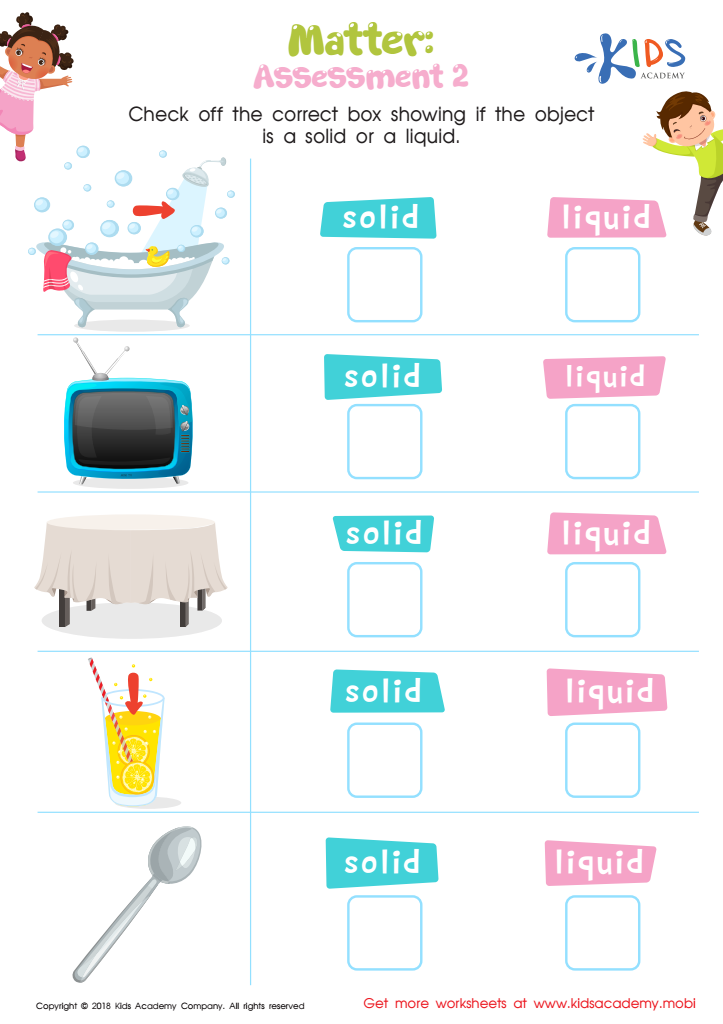Normal Science worksheets activities for 8-Year-Olds
4 filtered results
-
From - To


Matter: Assessment 1 Worksheet


Ecosystems: Assessment 1 Worksheet


Matter: Assessment 2 Worksheet


Ecosystems: Assessment 2 Worksheet
Normal Science worksheets activities have long been a fundamental tool in the educational sphere, particularly in instilling core scientific concepts and principles in students. These activities are designed to engage students actively in learning processes, making abstract concepts more concrete and understandable. The utility of normal Science worksheets extends across various dimensions, reinforcing why they are so beneficial in educational settings.
Firstly, normal Science worksheets activities cater to diverse learning styles. Whether a student is a visual, auditory, or kinesthetic learner, worksheets can be tailored to meet these varied needs, ensuring that no student is left behind in the learning process. This adaptability enhances inclusivity and maximizes the educational experience for all students.
Furthermore, these activities promote critical thinking and problem-solving skills. As students work through the exercises, they are often required to apply scientific methods, analyze data, and draw conclusions based on their observations. This process not only reinforces their understanding of the subject matter but also cultivates essential life skills that extend beyond the classroom.
Normal Science worksheets also facilitate self-paced learning. Students can work through the material at their own speed, allowing for a more personalized learning experience. This is particularly beneficial for reinforcing concepts, as students who may need more time to grasp certain ideas can revisit and review the worksheets as needed without feeling rushed or pressured.
Additionally, normal Science worksheets serve as a valuable assessment tool for educators. Teachers can quickly gauge a student’s comprehension of the topic, identify areas of weakness, and tailor their instruction to address these gaps. This ongoing feedback loop is crucial for effective learning and teaching.
In summary, normal Science worksheets activities are not just another task to complete; they are a versatile, engaging, and effective tool in the educational repertoire. They support diverse learning styles, encourage critical thinking, enable self-paced study, and provide essential feedback for both students and educators, making them an invaluable asset in the pursuit of scientific literacy.
 Assign to the classroom
Assign to the classroom





.jpg)






